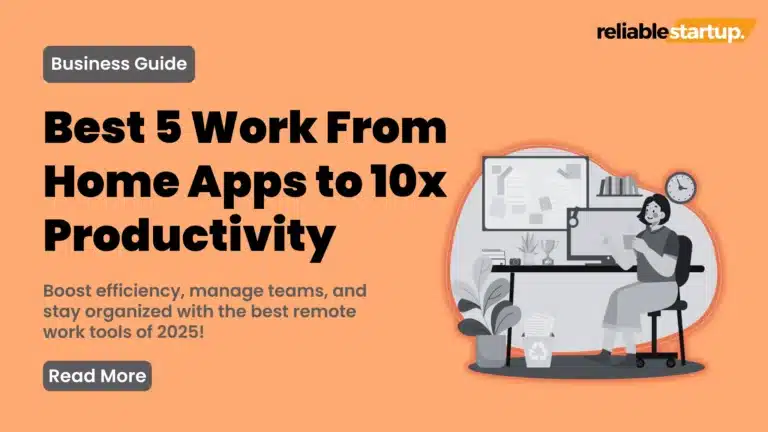Top 10 Healthy Foods Companies in the United States
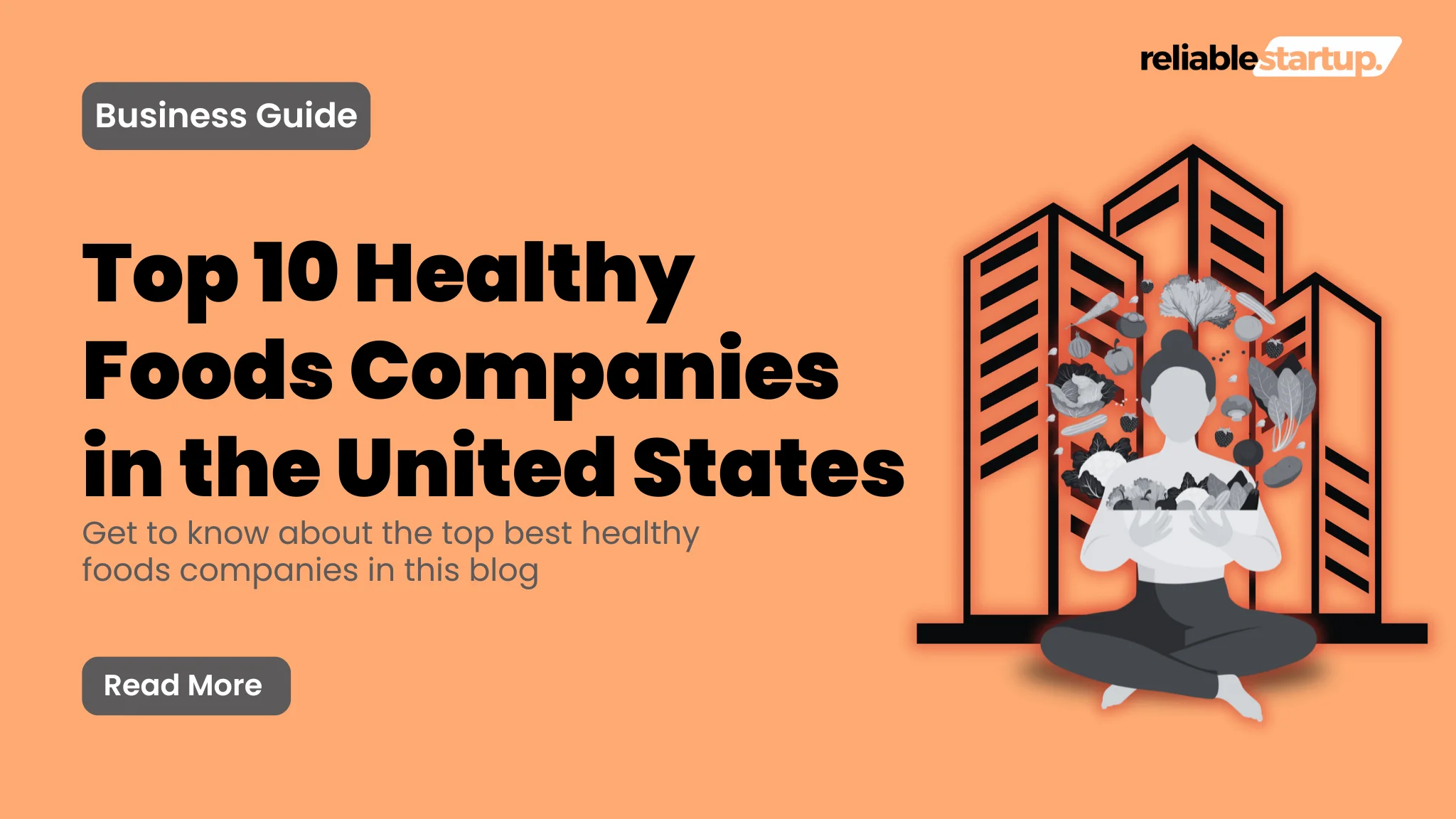
Healthy food is no longer a trend, it’s a booming industry. People aren’t satisfied anymore with some products on the shelf. They’re scanning labels, researching ingredients, and asking one important question: “Is this good for me?”
This shift in consumer behavior is a goldmine for entrepreneurs and founders… but a challenge. It’s a fierce competition, there’s always innovation going on, and if you’re not paying attention you could be left behind.
The reason is, therefore, that knowing who the top players of the healthy food industry are is not just important, but a must to do.
These top brands would show you how to create a direct line between business and a health-conscious market, achieve mission-driven growth, and win in a crowded field.
We would break down the Top 10 Healthy Foods Companies in the USA who they are, what they’re doing right, and how are they setting the bar for the industry.
So let’s read in-depth.
What is a Healthy Food Company?
A healthy food company is one that puts its focus on creating and delivering a healthy food product, which is good in nutrition, wellness, and sustainable for people.
These companies use high-quality, natural, and minimally processed ingredients to support healthier ways of living.
Typically they cater to all kinds of dietary requirements, from organic to plant-based, gluten-free, to low sugar, all of which also prioritizes transparency in sourcing and production.
Healthy food companies are not just about providing nutritious products they want to solve real-world problems like fighting obesity, lowering our environmental footprint, and meeting consumer demands for ethical and healthy eating.
It’s not just about selling food, it’s also about teaching better living through healthier eating habits.
Top 10 Healthy Foods Companies in the USA
1. Organic Valley
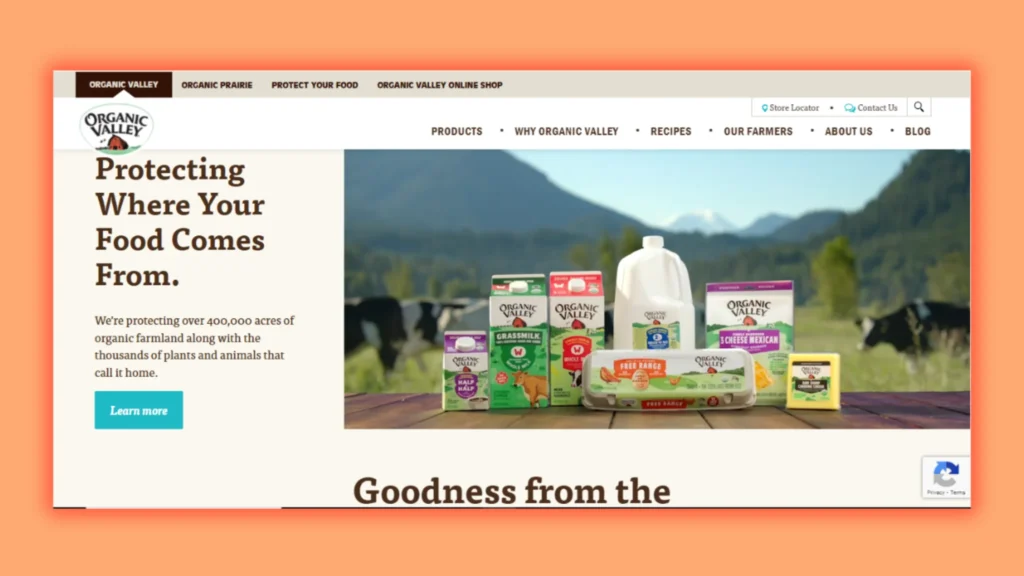
A leading U.S. farmer-owned cooperative, Organic Valley produces high-quality organic dairy and meat products.
This cooperative was founded in 1988 and they support sustainable agriculture by helping renewable energy on the farms and reducing food miles.
Millions of people around the world know and trust Organic Valley because it is a cooperative run by nearly 2,000 farm owners in the United States, Canada, Australia, and the United Kingdom.
They’re available in grocery stores and health food stores across the country.
2. Chobani
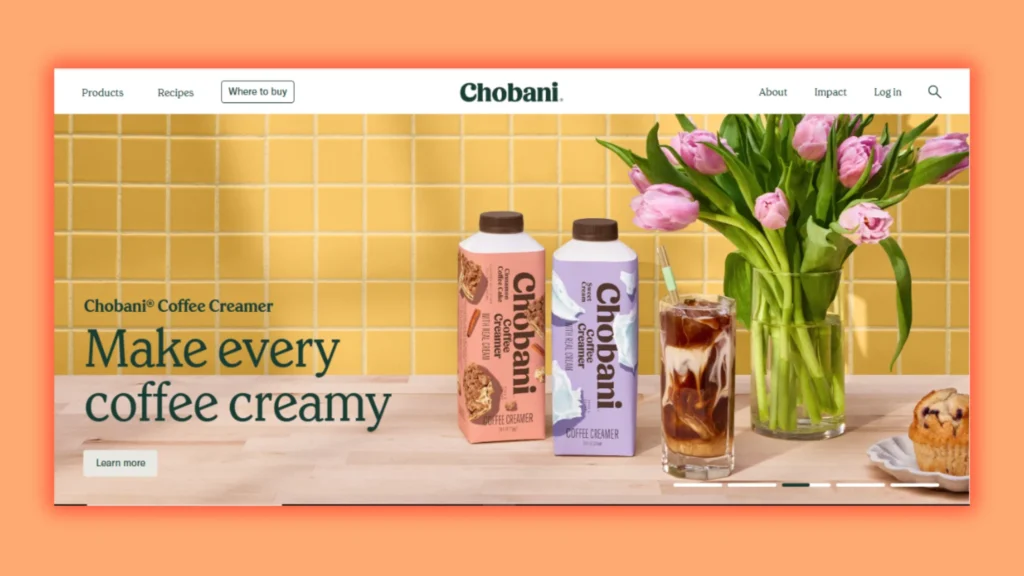
Headquartered in Norwich NY, Chobani set out to revolutionize the yoghurt industry since 2005 with its affordable, all-natural Greek yogurt.
The result is today it is one of the largest yogurt manufacturers in the U.S. and expects to generate a revenue of $5 Billion.
Chobani has gone beyond yogurt with oat milk, plant-based creamers ,and functional beverages including probiotic drinks.
Take, for example, their beloved vanilla oat milk: creamy with no dairy.
As remarkable as their products are, their commitment to both using non-GMO ingredients and philanthropic initiatives like paid family leave and hiring refugees, is noteworthy too.
Their innovation with taste and community impact too is driven by Chobani’s mission: to make better food for more people.
3. Sprouts Farmers Market
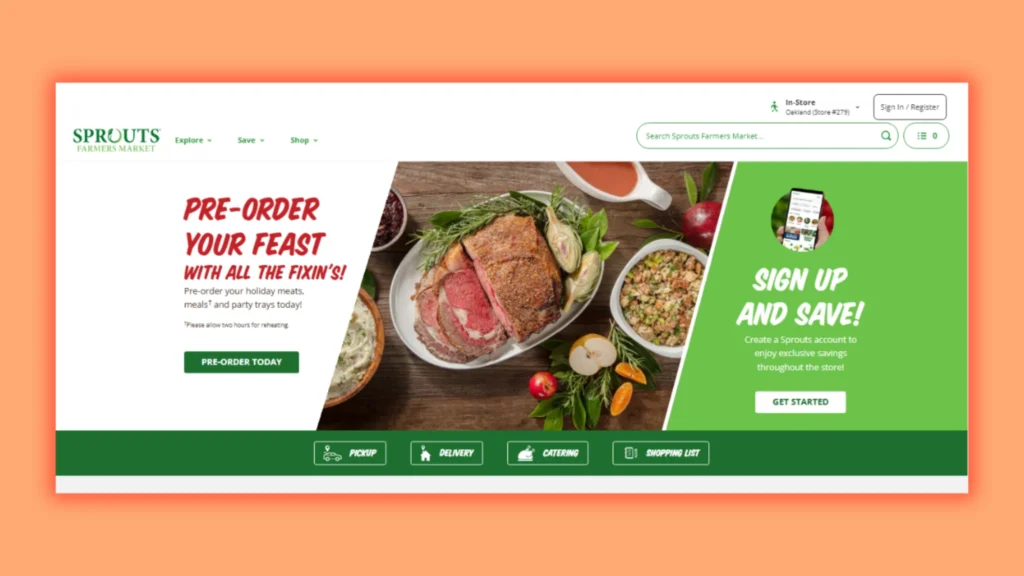
Sprouts Farmers Market has more than 380 stores around the U.S. based out of Phoenix, Arizona.
This grocery chain is all about fresh, organic produce, natural foods, and health products.
On the flip side, they offer keto-friendly meal kits, gluten-free snacks, and plant-based alternatives.
Their annual revenue is close to $7.42 billion in 2024, but it is exceedingly stable.
As well, Sprouts is dedicated to decreasing food waste through collaboration with hunger relief associations and sustainability programs.
One of their standouts is having a bulk section to let customers buy affordable portions of nuts, grains, and seeds that are eco-friendly.
For health-conscious consumers seeking the best quality and most affordable natural products, Sprouts Farmers Market is a go-to.
4. General Mills
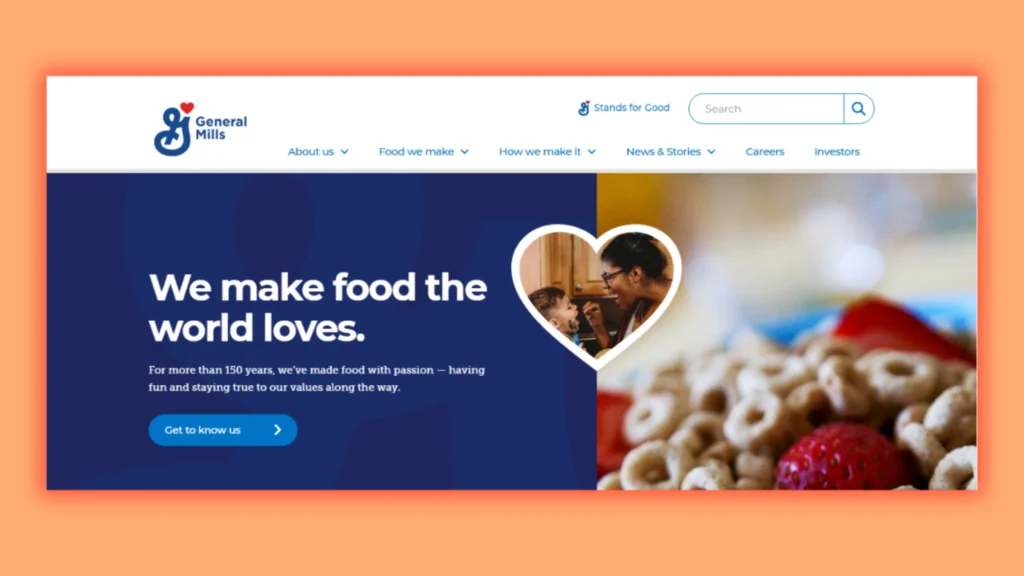
Minneapolis, MN-based General Mills is a giant, it is a company with revenue of $19.86 billion in 2024.
Popular brands in which Cheerios, Nature Valley, and Annie’s belong to their portfolio. But lately, they made the jump to health-conscious trends and offer products that fit plant-based and organics.
Cascadian Farm (owned by General Mills) has products including organic granola and snacks.
The company also has committed to bringing regenerative agriculture to 1 million acres of farmland by 2030 to increase soil health and sustainability.
Both health-focused and convenience have made them a leader in both segments, and General Mills’ focus on innovation has kept them relevant in a rapidly changing market.
5. Dr. Praeger’s
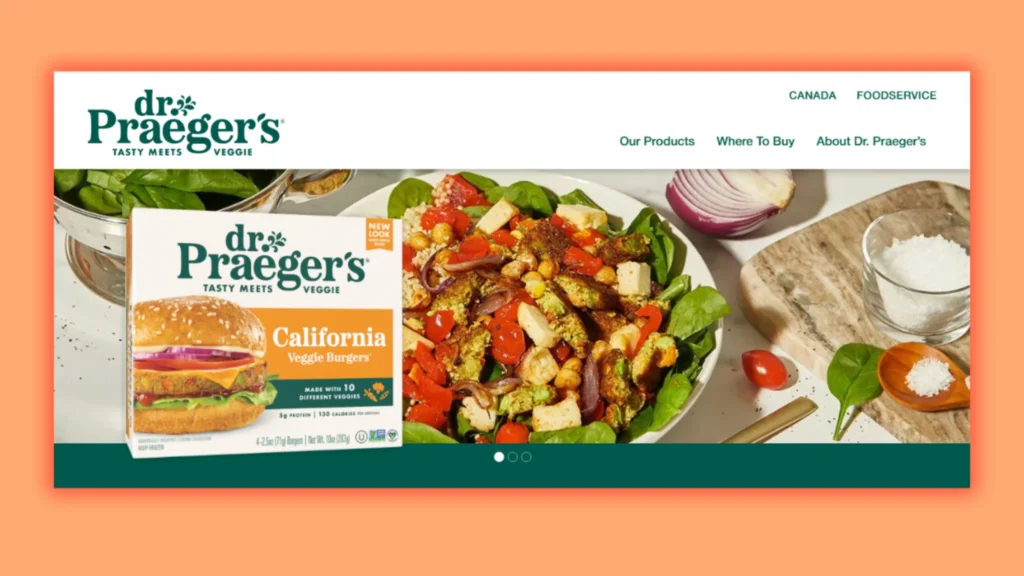
Dr Praeger’s is a family-owned business founded in 1994 that makes plant-based frozen foods out of Elmwood Park, NJ.
The company was known for its veggie burgers, made with whole food ingredients like carrots, peas, and sweet potatoes.
Vegetarians and everyone else alike love their famous ‘California Veggie Burger’ which with 10 different vegetables is packed full of flavor.
They also offer gluten-free and soy-free free for allergen-sensitive customers.
Dr Praeger expanded its line in 2023 to protein-packed bowls and snackable veggie bites that appeal to health-conscious families and individuals.
The transparent ingredient list and wholesome recipes have made them a trusted brand in the organic food market.
6. Tom’s Perfect 10
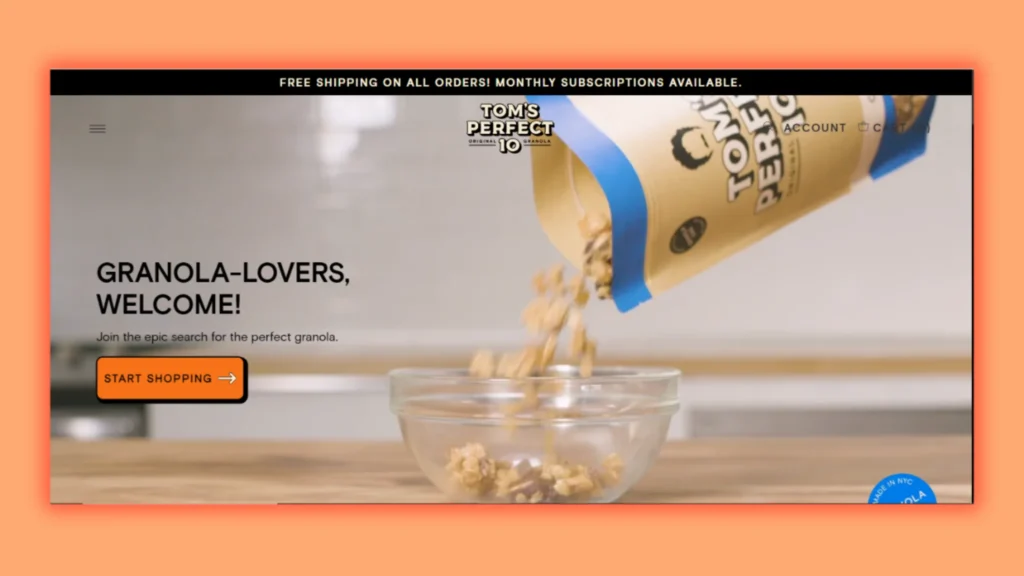
Brooklyn, NY-based granola company, Tom’s Perfect 10 is distinct for their customer-centric product development.
It invites social media followers to vote on possible flavors, encouraging a sense of community, and exclusivity.
They bake their small batch granola using only premium ingredients like organic oats, raw honey, and dark chocolate.
Flavors include Peanut Butter Cup and Blueberry Matcha.
While this was its niche, the company has secured itself a devoted following among health-conscious snackers and foodies.
Tom’s Perfect 10 is a quality-over-quantity direct-to-consumer model that appeals to millennials and Gen Z.
7. PurFoods (Mom’s Meals)
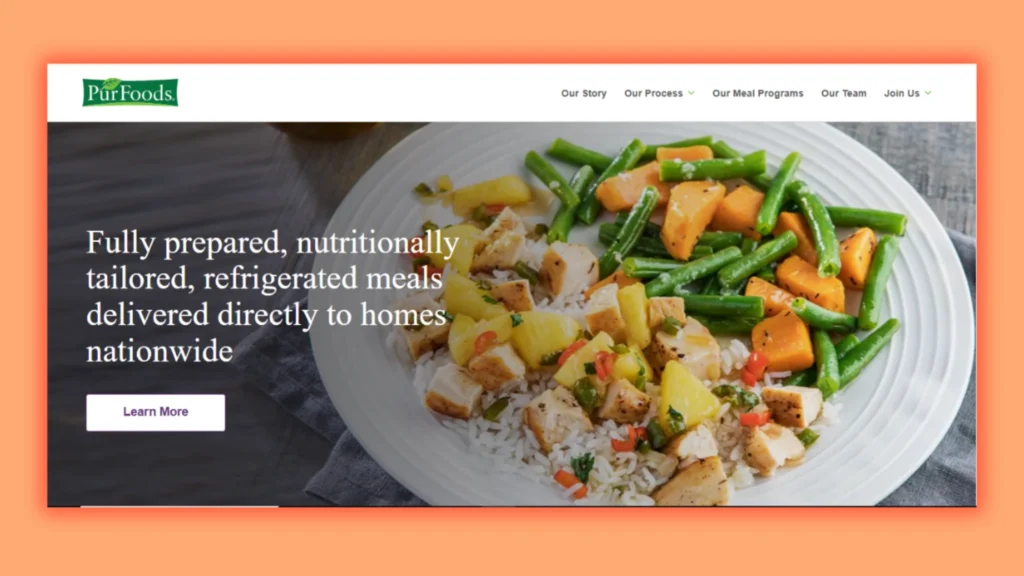
PurFoods, which operates under the brand Mom’s Meals, is based in Ankeny, IA, and delivers nutritionally tailored, ready-to-eat meals nationwide to those with specific health needs, including seniors and those living with chronic conditions like diabetes or heart disease.
Their meals, which are created by dietitians, are personalized to meet different dietary guidelines, such as low sodium or low carb-based diets.
So, for example, a diabetic-friendly meal might be grilled chicken with steamed veggies and whole grain rolls.
For those with Medicare or Medicaid, often covering costs, PurFoods’ mission is to make health-focused eating accessible.
8. Future Fit Foods
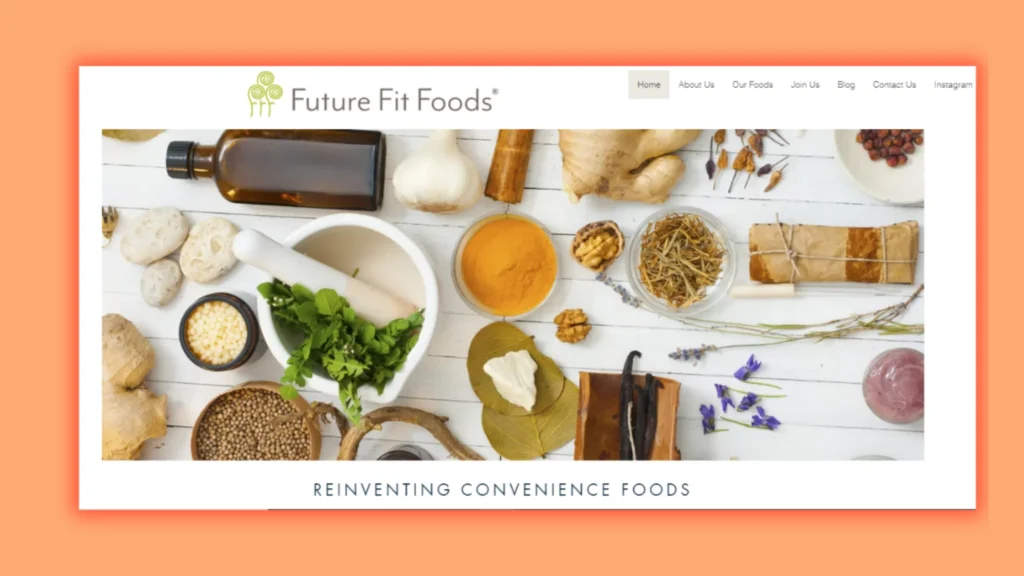
Future Fit Foods is a plant-based, portable soup and meal company based in Boulder, CO as the world keeps spinning, designed for busy lifestyles.
Similar to their product, “Spiced Lentil Soup,” which is packed with nutrients, their products feature flavor, convenience, and eco-friendly packaging.
The company was founded in 2020, but it almost immediately attracted environmentally minded consumers.
What sets Future Fit Foods apart is that surveillance has played a large role in the company’s continuing commitment to being sustainable, meaning that from sourcing local ingredients to using recyclable materials, they practice what they preach.
With a focus on small-batch production, they prioritize quality so eating what you should, is simpler for on-the-go professionals and active families.
9. Misionero
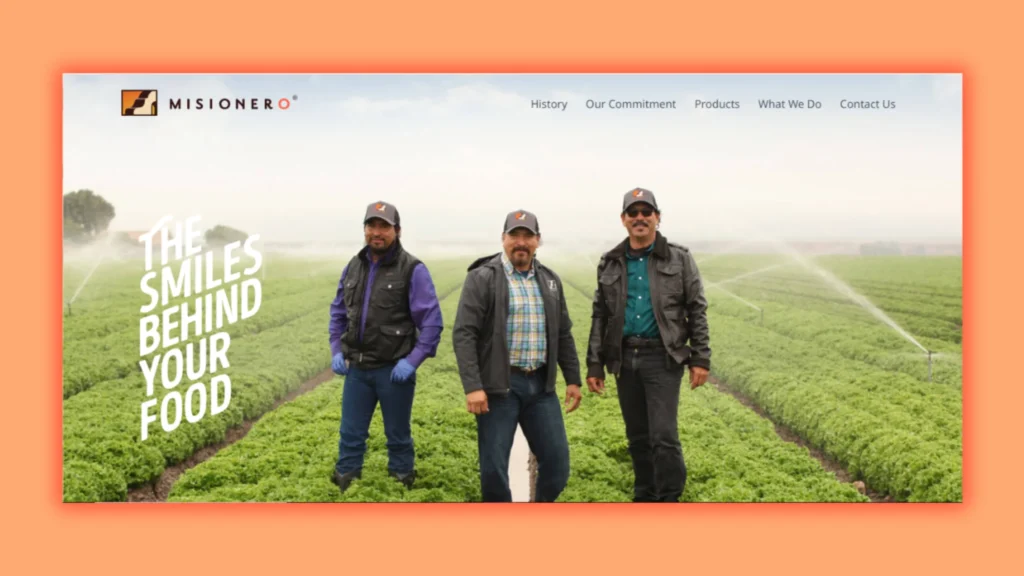
Gonzales, CA-based Misionero focuses on organic salad kits and pre-cut vegetables.
The company stands firm in its commitment to sustainability with ethical growth and processing methods.
Their health-forward product lineup consists of their “Superfood Salad Kit” with kale, quinoa, and cranberries.
Misionero is a platform catering to retailers and consumers desirous of convenient, ready-to-eat produce in sync with present-day dietary trends.
Additionally, they look at cutting down their environmental impact, by being energy efficient and taking up renewable energy projects.
10. Kellanova (formerly Kellogg’s)
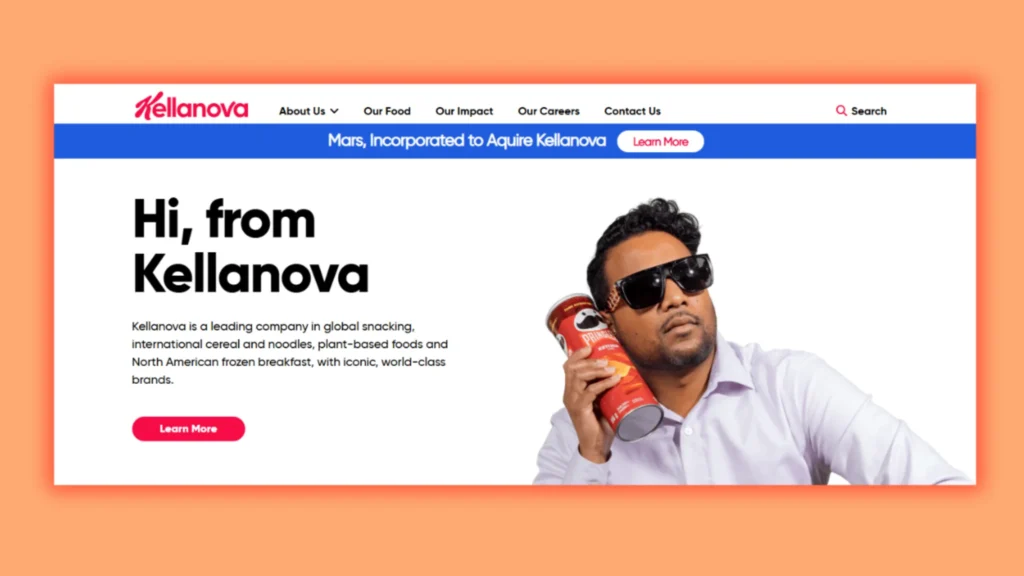
Headquartered in Chicago, IL, a global food company (Kellogg’s) rebranded as Kellanova in 2023 this company rakes in $27.78 billion in revenue.
They’re known for more health-conscious brands, such as MorningStar Farms, which is a plant-based plant protein, and RXBAR, which is bars with simple, clean protein.
The company is also developing innovation in plant-based foods to meet the growing demand for alternatives to traditional meat and dairy and is also progressing in the role of genetic engineering in crop-based foods.
Kellanova is committed to building sustainability, where they reduce food waste and use of recycled materials in the packaging.
Benefits of Starting Healthy Foods Companies:
1. Meeting Consumer Demand
Awareness about the relationship between diet and health continues to go up, and more and more consumers are seeking out clean-label, organic, nutritious food products.
This growing demand gives rise to healthy food companies to capitalize and remain market-relevant and profitable.
2. Building Brand Loyalty
By offering customers health-conscious options it builds customer trust and loyalty.
Brands like Chobani have gained long customer relationships by first putting health and sustainability.
3. Supporting Public Health
These companies ensure they provide healthier food options to fight chronic health problems including obesity, diabetes, and heart disease.
The implication of this societal impact is in sync with government incentives and public health goals.
4. Potential for Growth
Healthy food companies are doing well with trends such as plant-based diets, organic farming, and eco-friendly packaging expanding.
They match the world trends in sustainability and open doors to future growth opportunities.
5. Sustainability contribution
Healthy food companies are many of them who focus on eco-friendly practices, for example, renewable energy use, waste reduction, and sustainable agriculture.
Along with reducing its environmental footprint, it makes it more attractive to eco-conscious consumers.
6. Competitive Advantage
Differentiation in the crowded food industry comes from a focus on health and wellness.
Sometimes, it’s the businesses that innovate with healthier, functional foods, such as probiotic-rich yogurts or plant-based snacks, that stand out.
7. Niche Markets and their Profitability
There are niches like gluten-free, keto, or vegan products where healthy food companies can rule with a specialty product that customers are willing to pay a premium price for.
Final Thoughts
Now, you have the basic know-how of how big healthy food companies work, and what niches they have chosen to crack.
In case you are willing to start your own healthy food company, and want to discuss the idea with someone professional and experienced, Reliable Startup got you.
Contact us to bring your dream into reality!
That’s all! You can also check out 10 Fintech Funded Startups-How to Get Your? and Top 30 Education and EdTech Venture Capital Firms.
FAQs
1. What are some healthy food companies?
Some well-known healthy food companies around the Globe are:
- Chobani: Greek yogurt expert and maker of products made with natural ingredients like oats.
- Purely Elizabeth: Leading clean-label granolas and snacks.
- Organic Valley: An organic dairy and meat products farmer-owned cooperative.
- Vital Choice Seafood: Sells sustainably harvested wild seafood rich in omega 3’s.
2. What is the largest food company in the world?
The Swiss headquartered Nestlé is the largest food company in the world. Nestlé has a presence in more than 186 countries and a broad portfolio from health-focused foods with products such as plant-based products, baby formula, and fortified foods to traditional foods and beverages.
3. What are the top 5 healthiest foods?
While “healthiest food” can vary by dietary needs, commonly recognized top choices are:
- Leafy Greens: Spinach, kale, and Swiss chard are nutrient-dense, and low-calorie.
- Berries: Antioxidants and fiber are high in blueberries and strawberries.
- Fatty Fish: Omega 3 fatty acids are high in salmon and mackerel.
- Nuts and Seeds: Healthy fats and protein come from almonds, walnuts, and chia seeds.
- Whole Grains: quinoa, oats, and brown rice are good for sustained energy and digestion.
4. Is there a market for healthy food?
Of course, there is a great market for healthy food. Due to as such, the global wellness food and health market is expected to grow strongly. In the U.S., plant-based diets, organic products, and functional foods are gaining widespread popularity.
- The total value of the healthy food market is estimated to be around $554.04 billion by the end of 2024, and this value will additionally increase by over 6 % CAGR.
- There are big opportunities in the gluten-free, low sugar, and fortified food categories.
Meanwhile, you can also check out 21 Corporate E-Learning Solutions for Businesses (2025) and 50 Best Tech Startup Ideas 2024.

